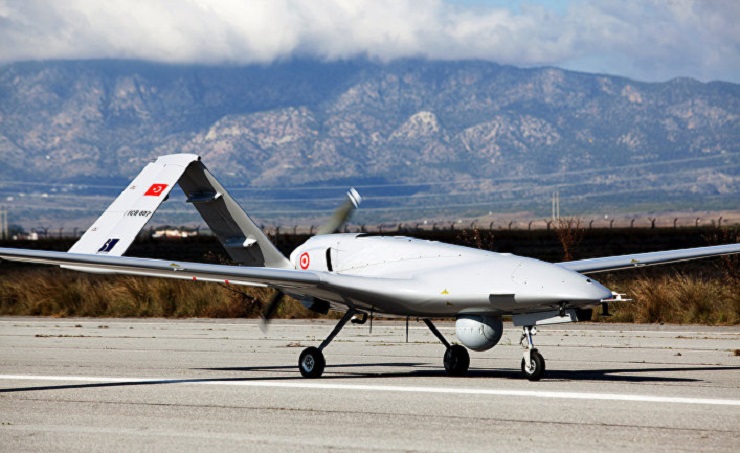While the contemporary ‘Muslim world’ continues to be arbitrarily defined by the Saudi-Iran ideological and political rivalry, this is far from the only faultline that exists and shapes the ‘intra-Muslim world’ geo-politics. Multiple faultlines exist, ranging from purely ideological and political to ethnic, sectarian and those that certainly are just inter-state rivalries. Inter-state rivalries, however, exist not just between overtly rival states, such as Iran and Saudia, but also the overtly ‘friendly’ states, including states that are otherwise ideologically compatible. A few cases in point may be the Saudi sponsored blockade of Qatar, or the way the UAE is changing its geo-political game at the expense of the Saudis—two very close allies vying for control in Yemen. A recent faultline that has emerged quite profoundly is the one between the UAE and Turkey, where both states have locked each other as potential competitors and rivals vying for dominance in the ‘Muslim world.’
This explains why both ‘Sunni states’ have adopted opposite policy options in Libya and Syria. In Syria, Turkey has always tried to ‘control’ Assad in a way that may allow it to permanently deal with the Kurdish minority group. Kurdish militias, ever since the US abandoned them, have gradually moved towards Damascus in the hopes of a ‘better understanding’ with Assad, thus causing alarming bells to ring loudly in Ankara.
The UAE, on the other hand, has started, as of recently, to revamp its relations with Damascus and even offered aid and money to complicate Turkey’s military presence and fight in Syria in order to dent its military support for the GNA in Libya. In Libya, the UAE is supporting the forces of Khalifa Haftar. Indeed, both Turkey and the UAE want to bring the oil-rich North African state under their control and see this territory as a gateway for further expansion into Africa, a continent that has more Muslim population than other continents. In other words, both the UAE and Turkey see their interests in Libya strongly linked with their bid to establish their dominance in the Muslim world.
On April 30, the UAE’s Ministry of foreign Affairs formally issued a statement, accusing Turkey of playing a ‘destabilising role’ in Libya through an alleged deployment of fighters and arms smuggling. The statement came against the larger context of how the UN-recognised GNA was on the verge of collapse few months ago when Turkey formally entered into agreements with Tripoli to bolster its positions vis-à-vis the forces of Khalifa Haftar.
In Libya, it was the UAE that introduced armed drones into the conflict. The UAE Chinese-made Wing Loong II drones carried out airstrikes there in support of the LNA. Turkey responded by sending in its own domestically-built Bayraktar TB2 drones on the side of the GNA, which it promptly used to attack LNA positions on the GNA’s behalf.
Before that, when Turkey decided late last year to send its troops, the UAE backed forces of Khalifa launched air strikes and bombed the airport of the Libyan coastal town of Misrata in a warning to Turkey not to send troops or further supplies.
But Turkey, of course, is not just interested in simply supporting GNA out of goodwill. Apart from the geo-political competition and the Muslim world dominance ambitions, Turkish intervention has visible marks of political-economy.
As it stands, Turkey is eagerly looking to acquire drilling rights in the Mediterranean sea, and steps taken to this direction have already complicated Libya’s relations with Greece, which lies in the Mediterranean and has conflicting claims.
The UAE, too, is not just interested in pushing back the forces that represent ‘political Islam.’ It also aims to establish its strong foothold in Mediterranean and the Red sea. DP World, its port company wants to expand in both the eastern Mediterranean and Red Sea, so having access to Aden and Benghazi would be a boost for that critical Dubai-based company. It has already built and attained control over military and commercial ports in Djibouti, Eritrea, Somaliland, and Puntland, allowing it and Saudi Arabia logistical sites for their war against the Houthis in Yemen and also giving the oil monarchies disproportionate influence in weaker states, notably Djibouti, which tried—and failed—to abrogate its port lease with DP World.
Turkey, too, has been building its own network of military bases for establishing its own foothold in as important strategic places as the Horn of Africa.
The competition thus is not just ideological or political; it has strong roots in the international political economy and spills well beyond the erstwhile ‘Sunni-Shia’ rivalry, overshadowed by the Saudis and the Iranians.
Indeed, a lot more is happening within the ‘Sunni world’ itself than meets the eye. If, on the one hand, Saudia’s bad policies and unnecessary wars and erosion of money have allowed the UAE to relegate it to a junior partner in countries like Libya and Syria and even in Yemen, the same seems to have encouraged Turkey to increase its outreach well beyond its borders.
At the same time, the increasing and geographically expanding rivalry and competition is making matters worse for countries like Libya where the conflict actually unfolds. The involvement of too many countries is effectively turning small and isolated conflicts in, for instance, Africa into ‘major power competitions’ and thus effectively eroding prospects of conflict resolution and return to normalcy.
Salman Rafi Sheikh, research-analyst of International Relations and Pakistan’s foreign and domestic affairs, exclusively for the online magazine “New Eastern Outlook”.

